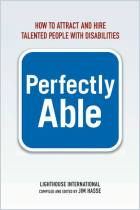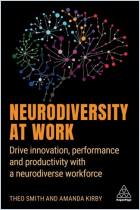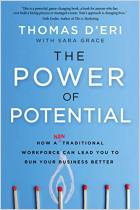
Dive In
Springboard into the Profitability, Productivity, and Potential of the Special Needs Workforce
Recommendation
A recent Northeastern University study reports that by 2018 companies will have more jobs than people to fill them. In fact, some 36 million U.S. employees will retire by 2014, leaving a huge gap in the labor pool. Nadine O. Vogel, a consultant on special-needs workforce issues and the mother of two daughters with special needs, suggests that employers can address this gap by hiring more people with disabilities. That category includes older workers, as well as the disabled and their caregivers, particularly parents of special-needs children. Writing with Cindy Brown, Vogel provides an abundant, well-rounded resource of valuable information to help employers develop and support a special-needs workforce. She starts by explaining the benefits of hiring special-needs employees and works through the entire process, from recruiting and training to accommodating individual needs. getAbstract finds that she does a thorough job of presenting the practical steps companies should take to create an inclusive culture. Her conversational, if not polished, style invites you to, well, dive in and make waves with your special-needs workforce.
Summary
About the Authors
Nadine O. Vogel is the founder and president of Springboard Consulting.


















Comment on this summary or Start Discussion